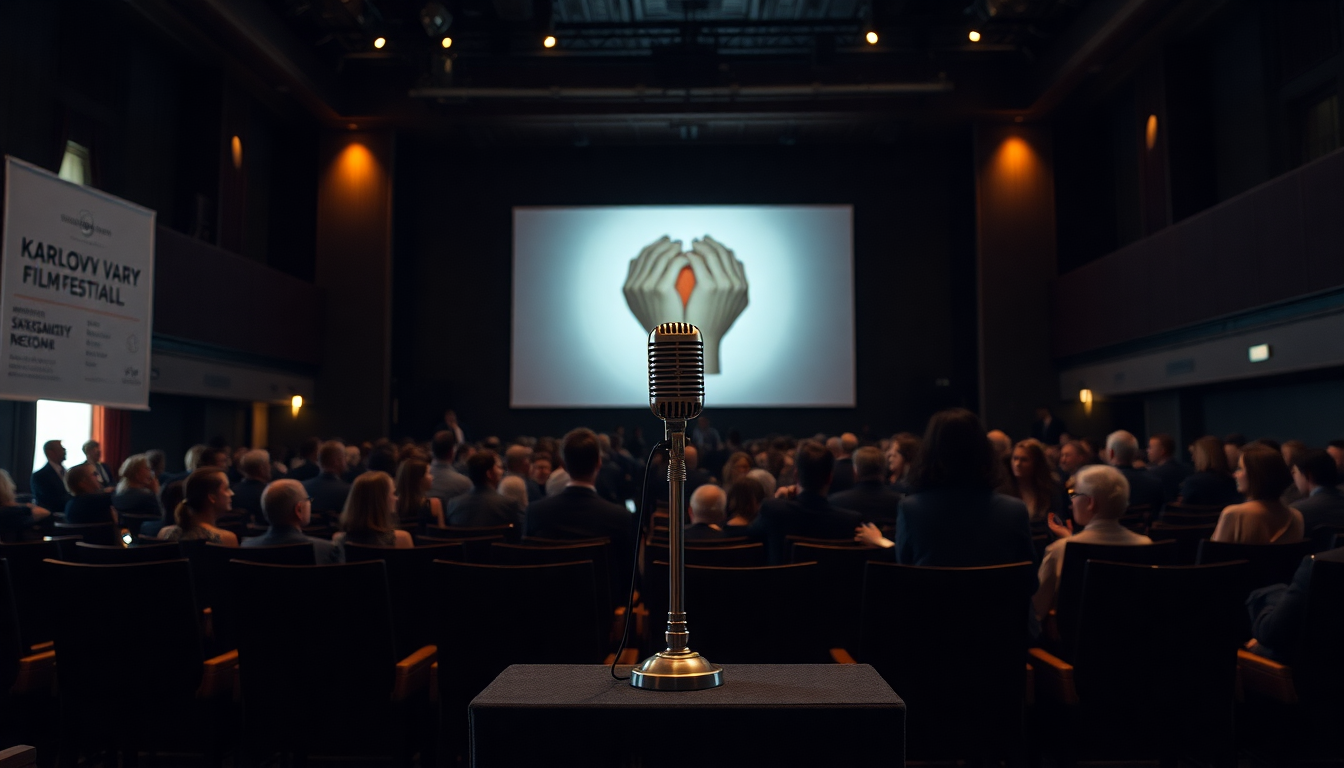Table of Contents
On the opening night of the 59th Karlovy Vary Film Festival, actor Peter Sarsgaard delivered a powerful acceptance speech for the President’s Award. In a moment that resonated deeply with the audience, he openly confronted the political divides currently plaguing the United States. In a world increasingly torn apart by issues of politics, gender, sexuality, and race, Sarsgaard highlighted the importance of finding a common enemy—something that can unite us against the forces of division. His words serve as a timely reminder that we need to stand together, especially when facing adversity.
The Power of Commonality in Adversity
Sarsgaard raised an urgent concern: as the U.S. steps back from its global responsibilities, internal divisions threaten to tear the nation apart. He stated, “When there’s a common enemy, there is no going it alone.” This statement hits home, doesn’t it? It reminds us that sometimes, it’s in our struggles that we find the strength to cooperate and stand together. By introducing the concept of a common enemy, Sarsgaard encourages us to consider what truly divides us while also hinting at ways we might come together again.
When asked why he chose to address political issues during his acceptance speech, Sarsgaard responded with conviction, asserting that discussing division is fundamentally a humanitarian issue. “To me, it is not political at all to say we’re being divided into smaller and smaller groups,” he explained, underscoring the human cost of such fragmentation. In a society where polarization is on the rise, his remarks serve as a rallying cry for each of us to look beyond our immediate concerns and recognize the broader implications of our divisions.
Historical Context and Personal Reflection
In his closing remarks, Sarsgaard quoted the wise Czech statesman Vaclav Havel, who once said, “one half of a room cannot remain forever warm while the other half is cold.” This poignant quote encapsulates Sarsgaard’s views on empathy and shared humanity. He elaborated on this idea, emphasizing the need to understand those we might consider adversaries. “Love your enemy,” he articulated, is not about condoning their actions but about nurturing an interest in their humanity. This nuanced perspective challenges the oversimplified narratives that often dominate today’s political discussions.
Reflecting on the current political landscape, Sarsgaard expressed skepticism about his generation’s commitment to collective struggle. However, he sees potential in younger generations who, despite their privileged backgrounds, seem to grasp the stakes involved. “My daughters are going to be willing to do that,” he said, hinting at a hope that today’s youth might rise to the occasion where others have faltered. This generational shift opens an important dialogue about responsibility, sacrifice, and the future of civic engagement in America.
The Landscape of Contemporary Cinema
Beyond his political insights, Sarsgaard also shared his thoughts on the film industry, reminiscing about his journey as an actor in the 1990s. He expressed concern about the current state of American cinema, emphasizing that the lack of government support for the arts has limited opportunities for emerging talent. “I don’t know how a young actor comes up and gets into anything interesting in the States,” he lamented. This observation highlights a significant issue within the entertainment industry, where funding is crucial for the types of stories that can be told.
Additionally, Sarsgaard discussed his collaborative efforts with his wife, filmmaker Maggie Gyllenhaal. He humorously admitted that he might be “tougher” on her than on any director he’s worked with, showcasing his deep respect for her craft and their shared commitment to artistic excellence. Their partnership exemplifies the larger artistic community, where collaboration and constructive criticism are vital for innovation and growth.


